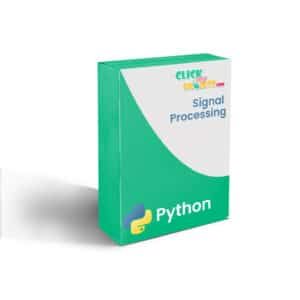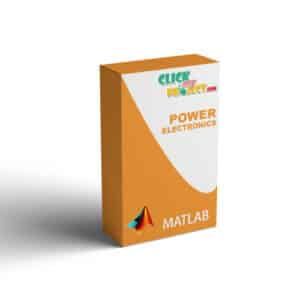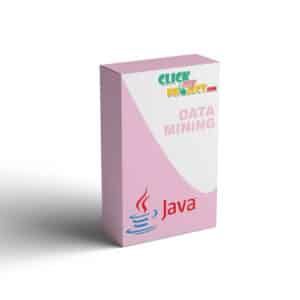 COMPUTER SCIENCE FINAL YEAR PROJECTS
COMPUTER SCIENCE FINAL YEAR PROJECTS
Accuracy Enhancement of Hand Gesture Recognition Using CNN
-15%Off
Dynamic Dual-Graph Fusion Convolutional Network for Alzheimer’s Disease Diagnosis
-15%Off
Multispectral Crop Yield Prediction Using 3D-Convolutional Neural Networks and Attention Convolutional LSTM Approaches
-15%Off
Classification and Prediction of Significant Cyber Incidents using Data Mining and Machine Learning Algorithm
-15%Off
MCAD: A Machine Learning Based Cyberattacks Detector in Software-Defined Networking (SDN) for Healthcare Systems
-15%Off
Classification and Prediction of Significant Cyber Incidents (SCI) Using Data Mining and Machine Learning (DM-ML)
-15%Off
Career search engine with Secure resume up loader
-15%Off
Linear/Non-Linear Energy Harvesting Models via Multi-Antenna Relay Cooperation in V2V Communications
-15%Off
Doctor & Patient appointment scheduler system
-15%Off
Streamlining Financial Management system
-15%Off
Accuracy Enhancement of Hand Gesture Recognition Using CNN
-15%Off
Dynamic Dual-Graph Fusion Convolutional Network for Alzheimer’s Disease Diagnosis
-15%Off
Multispectral Crop Yield Prediction Using 3D-Convolutional Neural Networks and Attention Convolutional LSTM Approaches
-15%Off
Classification and Prediction of Significant Cyber Incidents using Data Mining and Machine Learning Algorithm
-15%Off
MCAD: A Machine Learning Based Cyberattacks Detector in Software-Defined Networking (SDN) for Healthcare Systems
-15%Off
Classification and Prediction of Significant Cyber Incidents (SCI) Using Data Mining and Machine Learning (DM-ML)
-15%Off
Career search engine with Secure resume up loader
-15%Off
Linear/Non-Linear Energy Harvesting Models via Multi-Antenna Relay Cooperation in V2V Communications
-15%Off
Doctor & Patient appointment scheduler system
-15%Off
Streamlining Financial Management system
-15%Off
Accuracy Enhancement of Hand Gesture Recognition Using CNN
-15%Off
Dynamic Dual-Graph Fusion Convolutional Network for Alzheimer’s Disease Diagnosis
-15%Off
Multispectral Crop Yield Prediction Using 3D-Convolutional Neural Networks and Attention Convolutional LSTM Approaches
-15%Off
Classification and Prediction of Significant Cyber Incidents using Data Mining and Machine Learning Algorithm
-15%Off
MCAD: A Machine Learning Based Cyberattacks Detector in Software-Defined Networking (SDN) for Healthcare Systems
-15%Off
Classification and Prediction of Significant Cyber Incidents (SCI) Using Data Mining and Machine Learning (DM-ML)
-15%Off
Career search engine with Secure resume up loader
-15%Off
Linear/Non-Linear Energy Harvesting Models via Multi-Antenna Relay Cooperation in V2V Communications
-15%Off
 Electronics & Communication Engineering (ECE) Final Year Projects
Electronics & Communication Engineering (ECE) Final Year Projects
Accuracy Enhancement of Hand Gesture Recognition Using CNN
-15%Off
Dynamic Dual-Graph Fusion Convolutional Network for Alzheimer’s Disease Diagnosis
-15%Off
Linear/Non-Linear Energy Harvesting Models via Multi-Antenna Relay Cooperation in V2V Communications
-15%Off
Traffic Signal Control with Adaptive Online-Learning Scheme Using Multiple-Model Neural Networks
-15%Off
Brain Tumor Detection and Multi-Grade Segmentation Through Hybrid Caps-VGGNet Model
-15%Off
Meta Structural Learning Algorithm With Interpretable Convolutional Neural Networks for Arrhythmia Detection of Multisession ECG
-18%Off
Dawn Of The Transformer Era In Speech Emotion Recognition: Closing The Valence Gap
-15%Off
Accuracy Enhancement of Hand Gesture Recognition Using CNN
-15%Off
Dynamic Dual-Graph Fusion Convolutional Network for Alzheimer’s Disease Diagnosis
-15%Off
Linear/Non-Linear Energy Harvesting Models via Multi-Antenna Relay Cooperation in V2V Communications
-15%Off
Traffic Signal Control with Adaptive Online-Learning Scheme Using Multiple-Model Neural Networks
-15%Off
Brain Tumor Detection and Multi-Grade Segmentation Through Hybrid Caps-VGGNet Model
-15%Off
Meta Structural Learning Algorithm With Interpretable Convolutional Neural Networks for Arrhythmia Detection of Multisession ECG
-18%Off
Dawn Of The Transformer Era In Speech Emotion Recognition: Closing The Valence Gap
-15%Off
Accuracy Enhancement of Hand Gesture Recognition Using CNN
-15%Off
Dynamic Dual-Graph Fusion Convolutional Network for Alzheimer’s Disease Diagnosis
-15%Off
Linear/Non-Linear Energy Harvesting Models via Multi-Antenna Relay Cooperation in V2V Communications
-15%Off
Traffic Signal Control with Adaptive Online-Learning Scheme Using Multiple-Model Neural Networks
-15%Off
Brain Tumor Detection and Multi-Grade Segmentation Through Hybrid Caps-VGGNet Model
-15%Off
 Electrical and Electronics Engineering (EEE) FINAL Year Projects
Electrical and Electronics Engineering (EEE) FINAL Year Projects
Brain Tumor Detection and Multi-Grade Segmentation Through Hybrid Caps-VGGNet Model
-15%Off
High Gain Magnetically Coupled Single Switch Quadratic Modified SEPIC DC-DC Converter
-15%Off
Placement and Capacity of EV Charging Stations by Considering Uncertainties with Energy Management Strategies (Copy)
-15%Off
Ecommerce website for nodejs_mysql
-15%Off
PIFA Antenna Design for 4G Wireless Communications
-15%Off
Rice-Fusion: A Multimodality Data Fusion Framework for Rice Disease Diagnosis
-15%Off
Three-Leg DC–DC Converter for Efficient Inductive Power Transfer of Electric Vehicles for Wide-Range Battery Applications
-15%Off
Traffic Signal Control with Adaptive Online-Learning Scheme Using Multiple-Model Neural Networks
-15%Off
Brain Tumor Detection and Multi-Grade Segmentation Through Hybrid Caps-VGGNet Model
-15%Off
High Gain Magnetically Coupled Single Switch Quadratic Modified SEPIC DC-DC Converter
-15%Off
Placement and Capacity of EV Charging Stations by Considering Uncertainties with Energy Management Strategies (Copy)
-15%Off
Ecommerce website for nodejs_mysql
-15%Off
PIFA Antenna Design for 4G Wireless Communications
-15%Off
Rice-Fusion: A Multimodality Data Fusion Framework for Rice Disease Diagnosis
-15%Off
Three-Leg DC–DC Converter for Efficient Inductive Power Transfer of Electric Vehicles for Wide-Range Battery Applications
-15%Off
Traffic Signal Control with Adaptive Online-Learning Scheme Using Multiple-Model Neural Networks
-15%Off
Brain Tumor Detection and Multi-Grade Segmentation Through Hybrid Caps-VGGNet Model
-15%Off
High Gain Magnetically Coupled Single Switch Quadratic Modified SEPIC DC-DC Converter
-15%Off
Placement and Capacity of EV Charging Stations by Considering Uncertainties with Energy Management Strategies (Copy)
-15%Off
Ecommerce website for nodejs_mysql
-15%Off
PIFA Antenna Design for 4G Wireless Communications
-15%Off
Rice-Fusion: A Multimodality Data Fusion Framework for Rice Disease Diagnosis
-15%Off
 All Domain
All Domain
Streamlining Financial Management system
-15%Off
Dawn Of The Transformer Era In Speech Emotion Recognition: Closing The Valence Gap
-15%Off
Accuracy Enhancement of Hand Gesture Recognition Using CNN
-15%Off
Dynamic Dual-Graph Fusion Convolutional Network for Alzheimer’s Disease Diagnosis
-15%Off
Doctor & Patient appointment scheduler system
-15%Off
Streamlining Financial Management system
-15%Off
Dawn Of The Transformer Era In Speech Emotion Recognition: Closing The Valence Gap
-15%Off
Accuracy Enhancement of Hand Gesture Recognition Using CNN
-15%Off
Dynamic Dual-Graph Fusion Convolutional Network for Alzheimer’s Disease Diagnosis
-15%Off
Doctor & Patient appointment scheduler system
-15%Off
Streamlining Financial Management system
-15%Off
Dawn Of The Transformer Era In Speech Emotion Recognition: Closing The Valence Gap
-15%Off
Accuracy Enhancement of Hand Gesture Recognition Using CNN
-15%Off
Dynamic Dual-Graph Fusion Convolutional Network for Alzheimer’s Disease Diagnosis
-15%Off
 Data Mining Projects
Data Mining Projects
Towards Online Shortest Path Computation
-3%Off
Towards Online Shortest Path Computation
-3%Off
 Image Processing Projects
Image Processing Projects
Multilayer Convolution Neural Network for the Classification of Mango Leaves Infected by Anthracnose Disease
-4%Off
Texture Classification Using Dense Micro-Block Difference
-4%Off
Multilayer Convolution Neural Network for the Classification of Mango Leaves Infected by Anthracnose Disease
-4%Off
Texture Classification Using Dense Micro-Block Difference
-4%Off
 Signal Processing Projects
Signal Processing Projects
ICA With CWT and k−means for Eye-Blink Artifact Removal From Fewer Channel EEG
-15%Off
Epileptic Seizure Prediction Based on Multivariate Statistical Process Control of Heart
-4%Off
Brain Dynamics in Predicting Driving Fatigue Using a Recurrent Self-Evolving Fuzzy Neural Network
-4%Off
ICA With CWT and k−means for Eye-Blink Artifact Removal From Fewer Channel EEG
-15%Off
Epileptic Seizure Prediction Based on Multivariate Statistical Process Control of Heart
-4%Off
Brain Dynamics in Predicting Driving Fatigue Using a Recurrent Self-Evolving Fuzzy Neural Network
-4%Off
ICA With CWT and k−means for Eye-Blink Artifact Removal From Fewer Channel EEG
-15%Off
Best Final Year IEEE Projects for CSE, ECE, EEE and all Computer Projects
-
Instant Delivery
Get your project with 24 hrs
-
Secure Payment
We value your security
-
Online support
We have support 24/7
-
Value for Payment
100% statifaction gurantee
Latest Blog
10 Jun 2025
Machine learning is far more than just a trending term—it’s...
10 May 2025
Are you searching for the best final year engineering projects...
13 Jun 2025
Artificial Intelligence (AI) stands at the pinnacle of technological breakthroughs,...
10 Jun 2025
Machine learning is far more than just a trending term—it’s...
10 May 2025
Are you searching for the best final year engineering projects...
13 Jun 2025
Artificial Intelligence (AI) stands at the pinnacle of technological breakthroughs,...
10 Jun 2025
Machine learning is far more than just a trending term—it’s...
10 May 2025
Are you searching for the best final year engineering projects...





































